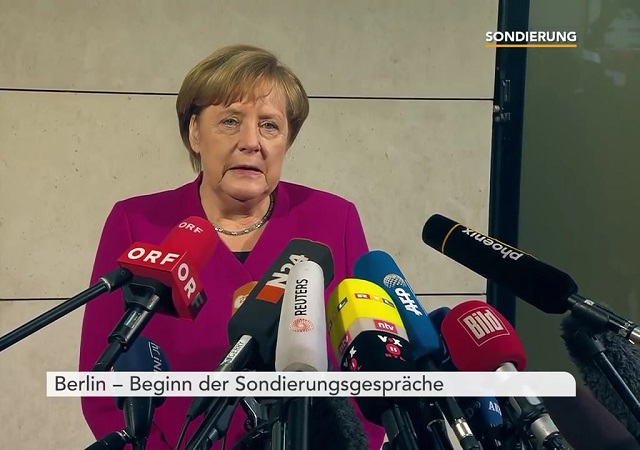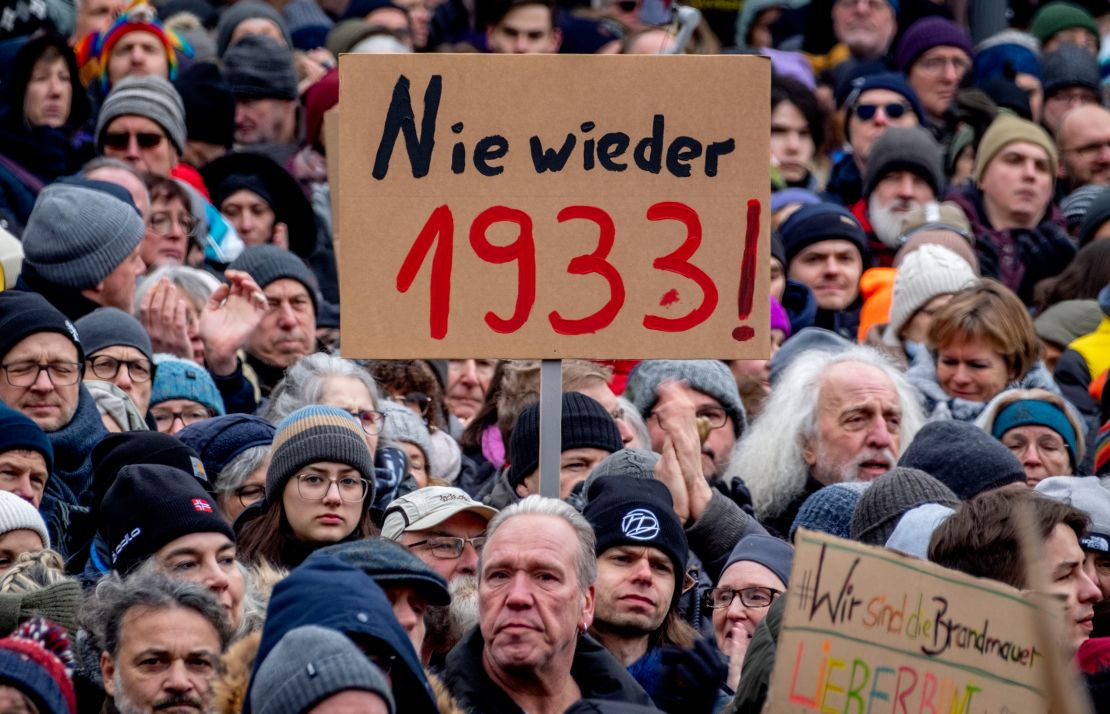Germany's SPD: Coalition Talks Amidst Youth Protests

Table of Contents
The SPD's Stance on Key Issues in Coalition Negotiations
The SPD's success in forming a stable coalition government hinges on its ability to negotiate compromises on a range of critical issues. Its proposed policies, particularly concerning climate change, economic policy, and migration, are subject to intense scrutiny and potential modifications during negotiations.
Climate Change Policies
The SPD has pledged ambitious climate action, advocating for a rapid transition to renewable energy sources and significant emissions reduction targets. Their proposed policies include substantial investments in renewable energy infrastructure, stricter regulations on industrial emissions, and incentives for green technologies. However, potential disagreements with coalition partners on the speed and scale of these changes are expected. The influence of youth climate activists, particularly the "Fridays for Future" movement, is undeniable. Their consistent pressure has pushed the issue higher on the political agenda, forcing all parties to address climate concerns more seriously. Keywords such as "climate policy," "renewable energy," "emissions reduction," and "environmental protection" are central to understanding the SPD's approach.
Economic Policy and Social Welfare
The SPD's economic policy focuses on sustainable economic growth, job creation, and strengthening social welfare programs. They aim to create a fairer society through investments in education, healthcare, and affordable housing. However, balancing these social priorities with fiscal responsibility during coalition talks will require skillful negotiation. Youth unemployment remains a pressing concern, and the SPD's proposals must address the needs of young people entering the workforce. The concerns of young voters significantly impact the political discourse, influencing the party's approach to "economic policy," "social welfare," "job creation," and "youth unemployment."
Migration and Integration
The SPD's approach to migration and integration emphasizes a humane and inclusive policy, supporting the integration of refugees and migrants into German society. However, this stance may face opposition from other coalition partners, leading to compromises on immigration quotas and integration programs. The perspectives of young immigrants and their participation in the broader protests must also be considered. Keywords such as "migration policy," "integration," "refugees," and "diversity" underscore the multifaceted nature of this challenge.
The Impact of Youth Protests on the Coalition Talks
The unprecedented scale and intensity of youth climate protests in Germany have significantly impacted the political landscape and the ongoing coalition talks. These protests have played a critical role in shifting public opinion and influencing the negotiation strategies of all involved parties, including the SPD.
Pressure from Youth Activists
The "Fridays for Future" movement and other youth activist groups have exerted considerable pressure on the SPD and other political parties. Their consistent demands for stronger climate action have forced the issue to the forefront of the political debate, influencing the SPD's negotiation strategy. Social media has amplified the voices of young protesters, creating a powerful platform for disseminating their message and mobilizing public support. Keywords like "youth activism," "climate protests," "Fridays for Future," and "political pressure" highlight the significant impact of these movements.
Shifting Public Opinion
Youth protests have played a crucial role in shaping public opinion on climate change and other policy issues. The increased awareness and concern about environmental issues have influenced voter preferences, potentially leading to increased voter turnout among young people. This shift in public opinion puts pressure on all political parties to address the concerns raised by young people, potentially influencing the outcome of the coalition talks. The resulting impact on "public opinion," "voter turnout," "youth vote," and "political influence" is profound.
Conclusion: The Future of Germany's SPD: Coalition Success Amidst Youth Activism
The SPD faces significant challenges during these coalition negotiations. Balancing ambitious policy goals with the realities of coalition politics requires skillful compromise and effective communication. The youth protests have significantly altered the political landscape, forcing parties to address climate change and other youth-related concerns with greater urgency. The outcome of the "Germany's SPD coalition talks" will have profound implications for Germany's future direction, particularly concerning its climate policy and its ability to address the concerns of a young and increasingly politically engaged generation. Stay informed about the ongoing "Germany's SPD coalition talks" – follow relevant politicians on social media, research party platforms, and engage in the political discourse to understand fully their impact on German society and its commitment to climate action.

Featured Posts
-
 The Impact Of Ai On Duolingos Contract Workforce
Apr 30, 2025
The Impact Of Ai On Duolingos Contract Workforce
Apr 30, 2025 -
 Vymershie Giganty Izuchenie Vorombe I Prichin Ikh Ischeznoveniya
Apr 30, 2025
Vymershie Giganty Izuchenie Vorombe I Prichin Ikh Ischeznoveniya
Apr 30, 2025 -
 Cardinale Becciu Condannato Al Risarcimento 40 000 Euro Agli Accusatori
Apr 30, 2025
Cardinale Becciu Condannato Al Risarcimento 40 000 Euro Agli Accusatori
Apr 30, 2025 -
 Zakrytie Gorok V Chelyabinske Posledstviya Neozhidannogo Potepleniya
Apr 30, 2025
Zakrytie Gorok V Chelyabinske Posledstviya Neozhidannogo Potepleniya
Apr 30, 2025 -
 Statement From Bayern President No Far Right Af D Members On The Board
Apr 30, 2025
Statement From Bayern President No Far Right Af D Members On The Board
Apr 30, 2025
